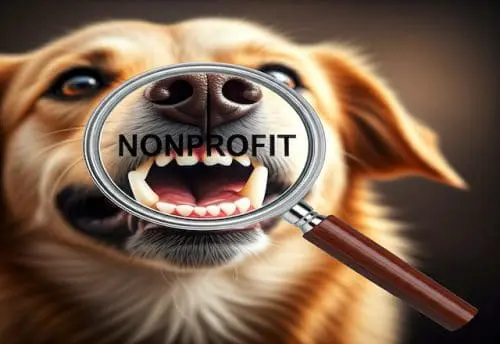The most dangerous weapon in the world is a system that convinces good people they are already making a difference.
—Anonymous Provocateur
Our previous exploration of performative activism (below) revealed a systemic disease of hollow rhetoric and calculated compassion. We exposed the theater of change where organizations and influencers perform empathy without substantive action. Now, we pivot from diagnosis to prescription—transforming critique into a definitive action plan specific to the nonprofit sector, emphasizing right upfront that passivity perpetuates the problem.
The nonprofit sector is a complex landscape where altruism and self-interest often intertwine. While many nonprofits are catalysts of positive change, tirelessly working to address pressing social issues, others may exploit the charitable spirit for personal gain. It’s essential to discern between these two types of organizations, supporting those that genuinely strive to improve lives and holding accountable those that prioritize profit over purpose.
A while back, ProPublica reported on how the Red Cross built just six homes after raising millions for Haiti disaster relief, how St. Jude Children’s Research Hospital keeps billions of dollars in reserves, and how a nonprofit college spent more on marketing than financial aid. Earlier this year, three former top executives at the Columbus Zoo and Aquarium were found guilty of corruption and theft, after engaging in a decade-long scheme to enrich themselves, costing the zoo over $2.2 million, including lavish spending on personal items and misuse of company funds for family benefits. Unfortunately, the list goes on. The UK’s Charity Commission has opened over 600 investigations into fraud in the past year, highlighting the ongoing issue of financial misconduct within the sector.
The charitable sector, often hailed as a beacon of hope, is riddled with darkness. Behind the façade of compassion and altruism, a disturbing reality lurks. Countless nonprofits, rather than serving their intended purpose, are mired in mismanagement, financial impropriety, and outright fraud. A significant portion of donated funds is siphoned off for administrative overhead, exorbitant salaries, and lavish perks for executives. While noble missions are touted, the actual impact on beneficiaries is often minimal. Moreover, many organizations deliberately obscure crucial details about their finances, operations, and the effectiveness of their programs.
 To protect yourself from becoming an unwitting accomplice in this deception, it’s imperative to approach charitable giving with a critical eye. Before donating, conduct thorough research on the nonprofit’s reputation, mission, and track record. Scrutinize reviews, ratings, and independent assessments to gain a comprehensive understanding of its credibility. Step back, pause, and ask yourself; Do you believe in the organization’s mission?; Does the nonprofit seem to live up to its mission? How do you know?; Can you find clear information about the impact of its work?; Does it spend the bulk of its Money (at least 80%) on programs?; Does it have a religious or political affiliation? If so, do you mind?; Is the website secure and up to date? and; Is there anything about the nonprofit that concerns you?
To protect yourself from becoming an unwitting accomplice in this deception, it’s imperative to approach charitable giving with a critical eye. Before donating, conduct thorough research on the nonprofit’s reputation, mission, and track record. Scrutinize reviews, ratings, and independent assessments to gain a comprehensive understanding of its credibility. Step back, pause, and ask yourself; Do you believe in the organization’s mission?; Does the nonprofit seem to live up to its mission? How do you know?; Can you find clear information about the impact of its work?; Does it spend the bulk of its Money (at least 80%) on programs?; Does it have a religious or political affiliation? If so, do you mind?; Is the website secure and up to date? and; Is there anything about the nonprofit that concerns you?
Hope is not a strategy. Accountability is. –Unknown
As a donor, you hold the key to unlocking transparency and accountability in the nonprofit sector. By demanding answers to the following questions, you can empower yourself and protect your hard-earned money. Or you can simply walk away:
As you consider how you want to give over the internet, don’t let anyone; pressure you, call you selfish, or make you feel guilty about deciding whether to donate; persuade you to send money, provide personal information, or share your credit card or bank account with someone you don’t know or trust, or; persuade you to donate using cash, gift card, cryptocurrency, or wire transfer. If you or anyone you know has been a victim of a charity scam, DON’T JUST IGNORE IT –immediately file a complaint with the FBI’s Internet Crime Complaint Center (IC3).

Charity watchdogs play a crucial role in the nonprofit sector by providing information, reviews, and ratings for charitable and nonprofit organizations. These watchdogs help donors make informed decisions, ensuring their contributions go to reputable and effective organizations:
With no SEC or federal government watchdog, no investors who will sue if given false information, and loose reporting rules, the nonprofit sector has little oversight and much room for financial manipulation. Don’t be a passive donor. Challenge the status quo. Demand ironclad transparency, unwavering accountability, and impeccable ethical practices from the nonprofits you support. Don’t settle for vague promises and empty rhetoric.
By asking uncompromising questions and holding organizations to the highest standards of accountability, you can ensure that your donations truly make a difference.
Editor’s Note: Enjoy our evolving Exploring Our Shared Humanity Series HERE
Originally Published on https://www.bizcatalyst360.com/author/dennisjpitocco/
Notifications